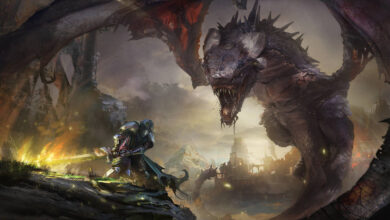History
Fascinating Creation Myths from Cultures Around the Globe
Every culture offers a unique perspective on the cosmos. At the heart of these viewpoints are captivating creation myths. From the intricate tales of Ancient Egypt to the cosmic dances of Hindu deities, these stories reflect the values and beliefs of their societies. They also reveal humanity’s ongoing quest to understand its origins.
In this exploration of creation myths from around the world, we will delve into the enchanting symbols and archetypes that have shaped civilizations. These myths continue to inspire awe and wonder. Join us on a journey that crosses borders and time as we unveil the rich tapestry of creation stories that illuminate our understanding of existence.
dogs
1. The Cosmic Egg in Various Cultures
- Many cultures have the idea of a cosmic egg. This egg represents the start of the universe. In Hindu myths, the Hiranyagarbha is an egg from which all life comes. The Chinese creation story also features a cosmic egg. It hatches, and from it, Pangu emerges to separate the sky from the earth. This egg symbolizes that all life comes from one source.
2. The Babylonian Epic of Creation
- The Enuma Elish is a famous Babylonian creation story. It tells of Marduk, the chief god, who rises to power. The story begins with Apsu (freshwater) and Tiamat (saltwater). Marduk defeats Tiamat, who represents chaos. Afterward, he creates the world from her body and humans from her blood. This myth shows the battle between order and chaos.

3. The Māori Creation Story
- In Māori mythology, the story begins with Rangi (the Sky Father) and Papa (the Earth Mother). Their children, like Tane (god of forests), see that their parents are too close together, blocking light. They decide to separate Rangi and Papa, allowing light and life to enter the world. This act shows how family ties influence creation.
4. The Great Spirit in Native American Mythology
- Many Native American tribes believe in a Great Spirit who created the world. In the Ojibwe tradition, the Earth rests on the back of a giant turtle. This turtle symbolizes strength and stability. It carries the Earth through the waters, showing the connection between land and water. The Great Spirit represents unity and balance in nature.
5. The Chinese Pangu Myth
- The myth of Pangu is a popular Chinese story. Pangu starts in a cosmic egg. As he grows, he separates the yin (earth) from the yang (sky). He works for 18,000 years. After his death, his body becomes various elements of nature. For example, his breath becomes the wind. This story teaches about growth and the balance of opposites.

6. The Egyptian Creation Myths
- Ancient Egypt has several creation myths. One tells of Atum, who arises from the Nun, the waters of chaos. Atum creates the first gods, Shu (air) and Tefnut (moisture), by speaking them into existence. This shows the power of words in creation. The myths often highlight cycles of life, just like the rising and setting of the sun.
7. The Greek Creation Story
- Greek mythology starts with Chaos, a void before creation. From Chaos, Gaia (the Earth) and Uranus (the Sky) appear. They have children called the Titans, who initially rule. A conflict arises between the Titans and the Olympians, led by Zeus. This struggle shows the change from one order to another.
8. The Igbo Creation Story
- The Igbo people of Nigeria have a creation myth centered on Chukwu, the supreme god. He sends Obasi, the earth goddess, to fill the world with plants, animals, and humans. The earth is seen as a living thing, emphasizing a strong connection to nature. This story highlights community, as humans are created to worship the gods.

9. The Incan Creation Myth
- Incan myths tell of Viracocha, the creator god who comes from Lake Titicaca. He creates the sun, moon, and stars to bring light. After making the first humans from clay, he finds them unsatisfactory and destroys them in a flood. He then creates a better race. This story reflects the idea of improvement and the importance of nature.
10. Creation Myths and Modern Science
- Many creation myths share ideas with modern science, especially the Big Bang Theory. Both explore how chaos becomes order and life begins. For instance, creation myths often show a void that turns into a structured world. This connection highlights our ongoing curiosity about life and our origins, linking ancient beliefs with modern understanding.




